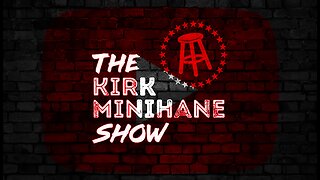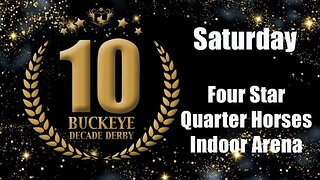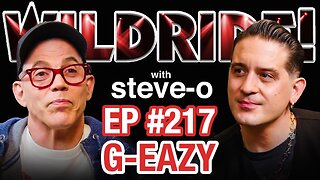Demon Locusts, Gog, & The Sun of Righteousness
#endtimes #SunOfRighteousness #gog
In this video we will discuss demon locusts and their king, Gog. This will take us into Ezekiel 38-39, Joel 1-2, Amos 7, and Revelation 9. Within this discussion we will explore Nahum’s mention of the “sun rise” and how later biblical authors expanded this concept into a full blown Messianic title. And when Jesus arrived on the scene, his interactions with the demonic was in fulfillment of these prophesies.
The Targum translates the open line of Nahum 3:17 as “behold, your plates gleam like the locust.” Dr. Klaus Spronk “The same idea is found in Revelation 9:9, speaking of demonic locusts with ‘scales like iron breastplates.’ So here we have another example of the influence of the book of Nahum - apparently, via the Targum - upon Revelation.”
Amos 7:1 LXX “Thus has the Lord God showed me; and, behold, a swarm of locusts coming from the east; and, behold, one caterpillar, king Gog.” So according to the Septuagint, Gog is the king of the locusts. But Proverbs 30:27 “Locusts—they have no king.” This lets us know that at times when the Bible mentions locusts, it isn’t talking about normal insects.
Gog is the prince over the coalition in Ezekiel 38&39. Ezekiel 38:2,9 “Son of man, turn and face Gog of the land of Magog, the prince who rules over the nations of Meshech and Tubal, and prophesy against him…You will advance, coming on like a storm. You will be like a cloud covering the land, you and all your hordes, and many peoples with you.” Granted, locusts are not mentioned in these chapters. However, Amos 7:1 speaks of a swarm of locusts. The idea of Locust swarms could also be communicated as a cloud of locusts. One news article from 2020 described a swarm of locusts as resembling dark storm clouds. So if the LXX is correct, Gog, a supernatural entity, is the king of the locusts. And he and his army descend upon Israel as a cloud in the last days. See Revelation 9:1-3, 7-11. Joel also describes a supernatural army as locusts.
But these locusts that Nahum describes flee when the sun rises and shines upon them. And the question is asked: where are they? Malachi 4:1-2 “The LORD of Heaven’s Armies says, “The day of judgment is coming, burning like a furnace. On that day the arrogant and the wicked will be burned up like straw. They will be consumed—roots, branches, and all. But for you who fear my name, the Sun of Righteousness will rise with healing in his wings. And you will go free, leaping with joy like calves let out to pasture.” The Hebrew word translated hedges, the place where the locusts camp, in Nahum 3:17 is gederah. Matthew 8:28-32 “And when he came to the other side, to the country of the Gadarenes, two demon-possessed men met him, coming out of the tombs, so fierce that no one could pass that way. And behold, they cried out, “What have you to do with us, O Son of God? Have you come here to torment us before the time?” Now a herd of many pigs was feeding at some distance from them. And the demons begged him, saying, “If you cast us out, send us away into the herd of pigs.” And he said to them, “Go.” So they came out and went into the pigs, and behold, the whole herd rushed down the steep bank into the sea and drowned in the waters.”
When the Son of Righteousness came to gederah the demons fled. Luke 1:78-79 “because of the tender mercy of our God, whereby the sunrise shall visit us from on high to give light to those who sit in darkness and in the shadow of death, to guide our feet into the way of peace.”
Luke 1:78 the Greek word translated sunrise is Anatole. This is the word the Septuagint uses to translate the Branch, a famous messianic title, in Jeremiah 23:5, Zechariah 3:8 and 6:12. So for Luke, the Sunrise is a Messianic title. This is confirmed by the Septuagint of the passages I just mentioned, but is also supported by Malachi 4:2 and Nahum 3:17. Because in Malachi and Nahum, the sun rises, is again in the Septuagint, the word anatello. This is the verb form of the same Greek word. Anatole is the noun and anatello is the verb. This verb also shows up in another messianic prophecy. Numbers 24:17 “I see him, but not here and now. I perceive him, but far in the distant future. A star will rise from Jacob; a scepter will emerge from Israel.” Nahum doesn’t present any overt, explicit messianic prophecy, although I do suggest the possibility that he has presented subtle messianic statements that are expanded upon later by Malachi, Jeremiah, Zechariah, and Luke.
When the Sun rises, when the Messiah comes, the locusts flee, and humanity, those who believe on his name, are set free. Amen!!
Thank you for listening. Please like, share, and subscribe to help the channel grow.
God Bless!
-
 1:11:09
1:11:09
LFA TV
15 hours agoTRUMP GUILTY…OF LOVING AMERICA! Ft. Hayley Caronia & Vish Burra | LAST CALL 6.1.24 8PM EST
22.5K17 -
 1:02:02
1:02:02
The Kirk Minihane Show
6 hours ago420 Show
18.2K -
 1:06:35
1:06:35
Patriots With Grit
5 hours agoSpeaking Up, Pushing Back | Daniel McGirr
15.2K5 -
 56:19
56:19
Total Horse Channel
2 days ago2024 Buckeye Reining Series | Saturday Night | 7:30 pm EST
19.1K2 -
 1:15:38
1:15:38
Steve-O's Wild Ride! Podcast
2 days ago $0.22 earnedG Eazy Opens Up About Falling Off - Wild Ride #217
23.8K11 -
 18:44
18:44
We Profit with Stock Curry
6 days agoUltimate Advice for Teens & Young Adults
29.2K13 -
 LIVE
LIVE
Lofi Girl
1 year agoSynthwave Radio 🌌 - beats to chill/game to
211 watching -
 21:00
21:00
Mr. Build It
23 days ago3 Ways to Build Garden Beds
33.6K14 -
 1:42:14
1:42:14
Jewels Jones Live
1 day agoDETRANS w/ special guest Mary Margaret Olohan | A Political Rendezvous - Ep. 78
36.8K21 -
 1:36:46
1:36:46
Roseanne Barr
1 day ago $73.82 earnedFor Love of Country with Tulsi Gabbard | The Roseanne Barr Podcast #50
152K429